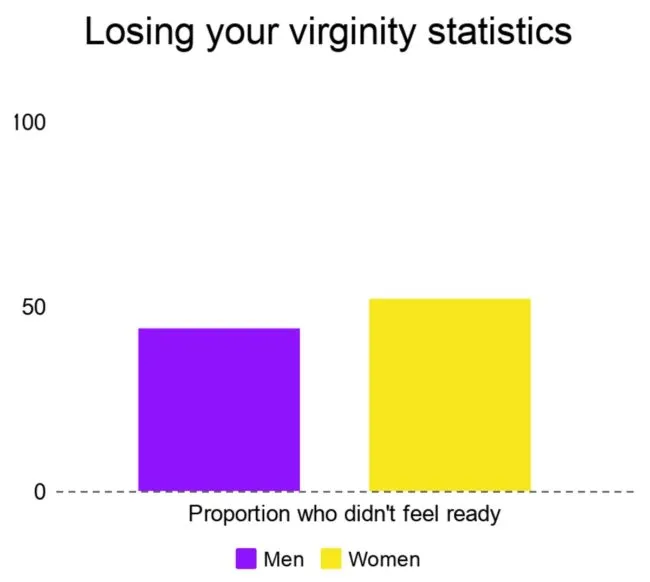Most girls lose virginity before they feel ready, statistics find

The study found that 52 percent of women did not feel ready for their first time having sex (Pexels)
The study found that 52 percent of women did not feel ready for their first time having sex (Pexels)
More than half of girls are not ready when they lose their virginity, a new study has found.
Statistics attained from more than 2,800 sexually active British people aged 17 to 24 showed that 52 percent of women and 44 percent of men were not prepared for their first time.
Researchers from the London School of Hygiene and Tropical Medicine told The Guardian that this meant they were not “sexually competent” at the time.

Twice as many girls as boys feel pressured into sex when they lose their virginity (Pexels)
Respondents were deemed ready if they were just as willing to have sex as their partner, did not feel they lacked autonomy—because they were drunk or felt pressured, for instance—used reliable contraception and felt it was the “right time.”
Women have a worse time when they lose their virginity
The paper, published last week in the BMJ Sexual and Reproductive Health journal, also showed that twice as many women as men feel pressured into sex when they lose their virginity.
Melissa Palmer, lead researcher of the study, told The Guardian these statistics suggested that “the experience of men and women might not be exactly the same.”

The statistics show that 52 percent of women and 44 percent of men weren’t ready to lose their virginity
Researchers added in their paper that “men generally give more positive accounts of first intercourse as they are more likely to just be happy that they had sex and less likely to report experiencing pressure from their partner.”
Women who lack sexual competence when they lose their virginity are more likely to have attained most of their sex education from friends, and to have avoided discussing sexual matters with their parents while growing up.
There is no magic age when you’re ready to lose your virginity
Kaye Wellings, a co-author of the study, said that the legal age of consent protected children, but also led people to feeling like they had to start having sex at 16.
“You might be 17, 18, 19 and not be ready”
— Kaye Wellings
She pointed to the “cliff face” in her statistics which showed that a great many people lose their virginity at this age.
“The message from the paper is not ‘scrap age, let them have sex at 12,'” Wellings told The Guardian.
“It is much more about the variability, that actually you might be 17, 18, 19 and not be ready.”
Either way, Wellings emphasised that someone’s “first sexual intercourse is a very salient event—only around 3 percent of people can’t remember when it happened.
“If it turns into a miserable experience then it colours subsequent experiences and that is a shame for young people because it is an important part of life and of their relationships.”

